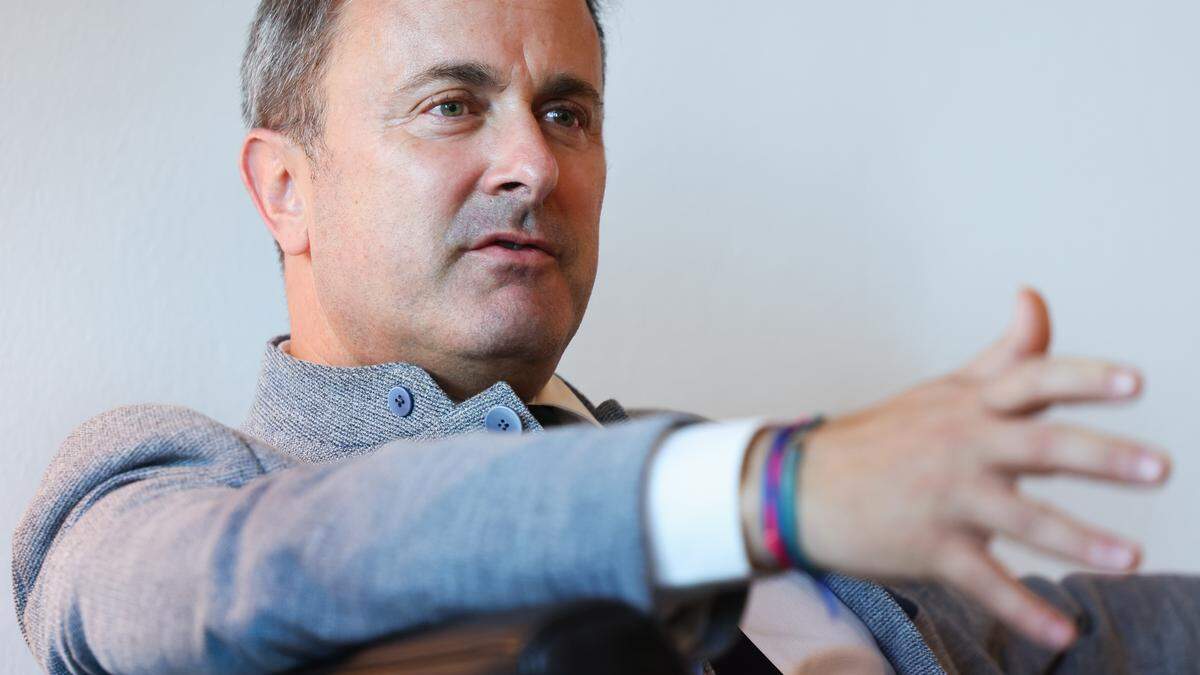The European Union and the United States’ tariff agreement brings “considerable unpredictability for the future”, Foreign Minister Xavier Bettel has said.
The deal, concluded on Sunday, sets a baseline tariff of 15% on most EU exports to the US, including cars, semiconductors and pharmaceuticals.
While the agreement has been welcomed as a step toward stability, reactions from Luxembourg politicians and industry representatives have been mixed.
Bettel said that while the agreement prevents a further escalation of tariffs between the United States and the European Union, “it brings with it considerable unpredictability for the future”.
“A return to international trade based on trust and free trade must be the common goal,” the foreign minister told the Luxemburger Wort in an interview.
Industry lobby group Fedil said that it was “better an agreement on sub-optimal terms than no agreement at all,” said Yves Germeaux, the association’s head of trade and international relations.
For companies in particular, the deal ends a period of uncertainty, said Germeaux, which would allow them to adjust to the tariffs and plan better, “even if the conditions are significantly different to what we have known so far”, said Germeaux.
Luxembourg’s former economy minister and LSAP deputy Franz Fayot, described the deal as “a good deal, for the United States,” stating in a social media post that it undermines EU climate goals as it will see the bloc buy “gas and oil from the Americans that compromise our climate objectives.”
“Madame von der Leyen travels to Trump’s golf [course] to humiliate the EU,” Fayot added.
CSV deputy Laurent Mosar, in a parliamentary question, warned that the 15% tariffs could have “considerable consequences” for companies in Luxembourg and echoed French concerns of a “capitulation” to Washington.
Tariffs on steel and aluminium are ‘worrying’
The announced tariffs would not only have an impact on companies, Fedil warned, but also on consumers in both Europe and the USA. “The agreement is already having a concrete impact on supply chains and increasing pressure on consumer prices on both sides of the Atlantic,” said Fedil’s Germeaux.
However, some sectors are exempt from the tariffs, such as aerospace. This is to be welcomed, “because many companies in Luxembourg are active in these sectors,” added the Fedil representative.
In addition, customs duties for the automotive industry have been reduced from 27.5% to 15%. “This is a positive signal for the automotive industry and therefore also for suppliers in Luxembourg who are tied to it,” explained Germeaux. However, until a few months ago, a tariff of just 2.5% still applied to this sector.
Has Europe capitulated?
Another concern remains: the USA’s restrictive trade policy will lead to more imports into the EU, for example steel from Asia. “We hope that the European Commission will act and take the necessary measures,” said Germeaux, noting that US tariffs on steel products of 50% are of particular alarm.
“Various solutions to the situation have been worked out. And this is probably the best deal the EU has been able to negotiate. But it is clear that the deal is not positive for the industry,” said Germeaux.
Nevertheless, Germeaux emphasised that the agreement is a good start and a step towards de-escalation, but both companies and customers will now have to wait and see how the agreement is implemented.
US President Donald Trump and EU Commission President Ursula von der Leyen have agreed on a basic tariff of 15 per cent on most EU exports to the USA. © Photo credit: AFP
Worldwide reactions to deal
France’s Prime Minister François Bayrou accused von der Leyen of submitting to Donald Trump. “A dark day,” he said.
German Chancellor Friedrich Merz welcomed the agreement, which had succeeded in “averting a trade conflict.” He emphasised that the “unity of the European Union and the hard work of the negotiators have paid off.”
Automotive industry expert Ferdinand Dudenhöffer said that although the trade agreement was good for the German car industry, it was less good for jobs. “The employees in the car and supplier industry are the losers,” he said.
Dutch Foreign Trade Minister Hanneke Boerma described the agreement as “not ideal” and called on the European Commission to continue negotiations with the USA.
Hungarian Prime Minister Viktor Orbán, who has long been a thorn in the side of the Brussels institutions, took an even harsher tone by criticising von der Leyen and praising the American president at the same time.
“Donald Trump ate Ursula von der Leyen for breakfast. The American president is a heavyweight in negotiations, Mrs President is a featherweight,” he said.
Source: Bloomberg, dpa
(This article was originally published by the Luxembourger Wort. Machine translated, with editing and adaptation by Lucrezia Reale.)
